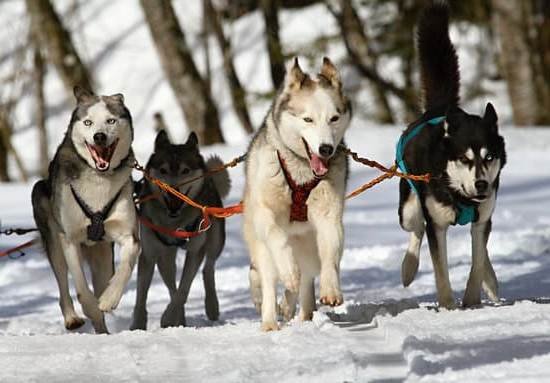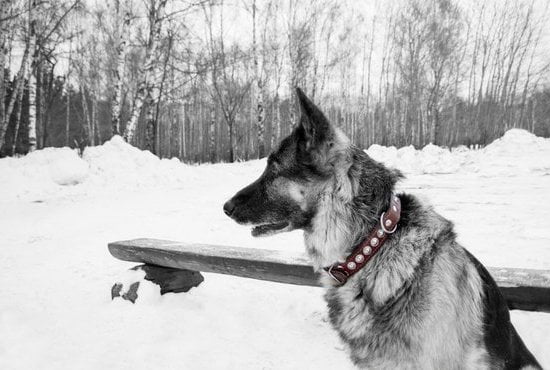Are you wondering, “Where can I train my service dog?” Training a service dog is a crucial process that involves not only the well-being of the dog but also the safety and comfort of its owner.
A well-trained service dog can make a significant difference in the lives of individuals with disabilities, providing assistance and support in various situations. In this article, we will explore the importance of training a service dog and the benefits it brings to both the dog and its owner.
Having a well-trained service dog can offer life-changing benefits for individuals with disabilities. From providing physical assistance to offering emotional support, a properly trained service dog can greatly improve the quality of life for its owner. Whether it’s guiding individuals with visual impairments or alerting those with medical conditions, these dogs play a crucial role in their owners’ daily lives.
Understanding the legalities surrounding service dog training is essential for both current and prospective owners. It’s important to be knowledgeable about the laws and regulations regarding service dog training, as well as the requirements for a service dog to be considered legally trained. With this information, individuals can ensure that their service dogs meet all necessary criteria to accompany them in public spaces and other settings.
Understanding the Legalities
When it comes to training a service dog, it is essential to understand the legalities surrounding this process. The laws and regulations regarding service dog training are in place to ensure that these animals are properly trained to assist individuals with disabilities.
In order for a service dog to be considered legally trained, it must meet certain requirements set forth by the Americans with Disabilities Act (ADA) in the United States. This includes specific tasks that the dog is trained to perform and its ability to behave properly in public spaces.
The ADA defines a service animal as a dog that has been individually trained to do work or perform tasks for an individual with a disability. These tasks can include anything from guiding individuals who are visually impaired, alerting individuals who are deaf or hard of hearing, pulling a wheelchair, retrieving dropped items, or even providing assistance during psychiatric episodes for those with PTSD.
It is important for service dog owners to be aware of these legal requirements and ensure that their dogs are trained accordingly.
In addition to meeting specific task-oriented criteria, a legally trained service dog should also exhibit proper behavior in public spaces. This includes being under the control of its handler at all times, remaining calm and well-behaved around people and other animals, and not being disruptive in any way. Understanding these legalities is crucial for anyone considering training a service dog, as compliance with these regulations is necessary for the rights of both the owner and the dog.
Choosing the Right Location
When it comes to training a service dog, choosing the right location is crucial for the success of the process. The ideal environment for service dog training is one that provides a balance of familiar surroundings and new experiences. This allows the dog to practice its skills in various settings, preparing it for real-life situations once it completes its training.
Factors to consider when selecting a training location include the presence of distractions, such as other animals or loud noises, as well as the accessibility and safety of the area. Training in different environments helps the service dog adapt to different stimuli and become more versatile in assisting its owner. Additionally, the location should allow for both indoor and outdoor training activities, providing opportunities for obedience training, socialization with other dogs, and exposure to various terrain.
It’s important to note that service dog handlers should always seek permission before using private or public spaces for training purposes. Understanding local regulations regarding dogs in public areas is essential when choosing where to train a service dog. This ensures that both the handler and the dog are abiding by laws and respecting the rights of others while using these locations for training exercises.
| Training Location Considerations | Importance |
|---|---|
| Diverse Environments | Helps prepare service dogs for real-life situations |
| Presence of Distractions | Aids in desensitizing the dog to various stimuli |
| Accessibility and Safety | Ensures a secure environment for effective training activities |
Professional Training Programs
When considering where to train a service dog, enrolling in a professional training program is a popular and effective option for many individuals. These programs offer structured and comprehensive training tailored specifically to the needs of the service dog and its owner.
Benefits of Professional Training
Professional training programs provide several benefits for both the service dog and the owner. The expertise and experience of professional trainers ensure that the dog receives proper guidance and instruction, leading to a well-behaved and reliable service animal. Additionally, these programs often include education for the owner, teaching them how to maintain the dog’s training and handle various situations effectively.
Choosing the Right Program
When selecting a professional training program for a service dog, it is essential to research and consider various factors. Look for programs with certified trainers who have experience working with service dogs. Consider the specific needs of the individual requiring the service dog, as some programs may specialize in certain types of assistance or support. Additionally, inquire about the program’s methods, duration, cost, and success rate to ensure it aligns with your preferences and requirements.
Enrolling in a professional training program can offer valuable support and resources for individuals seeking to train their service dogs effectively. By selecting an accredited program that meets their needs, owners can ensure that their service dogs receive proper training while also gaining invaluable knowledge themselves.
Self-Training Resources
For individuals who have the time, dedication, and patience to self-train their service dog, there are several resources and tools available to aid in this process. Self-training can be a rewarding experience for both the owner and the dog, but it requires commitment and consistency.
Researching Training Methods
Before embarking on the journey of self-training a service dog, it is essential to conduct thorough research on effective training methods. Understanding positive reinforcement techniques, obedience training, and behavior modification will be crucial in teaching the necessary skills to your service dog.
Utilizing Online Resources
The internet offers a wealth of information for individuals looking to self-train their service dog. Websites, forums, and social media groups dedicated to service dog training can provide valuable insights, tips, and support from experienced trainers and owners. Additionally, there are online courses and video tutorials specifically tailored to guide owners through the training process.
Seeking Professional Guidance
Even if you choose to self-train your service dog, seeking professional guidance from certified trainers or behaviorists can be incredibly beneficial. Attending workshops or private sessions with a professional can ensure that you are on the right track and receiving personalized advice for your specific needs.
With dedication and perseverance, self-training your service dog can result in a strong bond between you and your canine companion while equipping them with the necessary skills to assist you effectively. However, it is important to remember that not all dogs are suitable for self-training, so consulting with professionals before making this decision is crucial.
Access to Public Spaces
Training a service dog to behave appropriately in public spaces is a crucial aspect of their overall training. The ability for a service dog to conduct themselves properly in various environments not only ensures the safety and well-being of the public but also provides independence and assistance for their owner. When considering access to public spaces, there are several key points to keep in mind:
- Behavior and Etiquette: It is essential that a service dog exhibits good behavior and proper etiquette when in public areas. This includes remaining calm and focused, refraining from any disruptive or aggressive behavior, and following commands from their owner.
- Rights and Responsibilities: As a service dog owner, it is important to understand your rights and responsibilities when it comes to accessing public spaces with your service animal. Laws regarding the presence of service dogs in establishments vary by location, so it’s crucial to be informed about the specific regulations in your area.
- Public Awareness: Educating the public about the role of service dogs and their rights to be present in public spaces is also an important aspect of training. This can help create a more welcoming environment for both the service dog and their owner.
Ensuring that a service dog is well-trained for public access allows individuals with disabilities to lead more independent lives while also promoting inclusivity within society. By considering these factors and working with professional trainers or utilizing self-training resources, individuals can effectively prepare their service dogs for navigating various public environments.
Specialized Training Facilities
When it comes to training a service dog for specific needs, specialized training facilities can provide targeted and intensive training programs. These facilities cater to various requirements, including mobility assistance, diabetic alert, seizure response, PTSD support, and more.
Choosing the right specialized training facility is crucial in ensuring that the service dog receives the proper training for its designated role. Factors to consider when selecting a specialized training facility include the expertise of the trainers, the facility’s reputation, and the specific programs offered.
There are several advantages to enrolling your service dog in a specialized training facility. These facilities often have knowledgeable staff with experience in training service dogs for specific tasks. Additionally, they may have access to specialized equipment or tools that are necessary for certain types of service dog training. The structured environment offered by these facilities can also provide a focused and distraction-free setting for effective learning.
If you are considering specialized training for your service dog, it is essential to conduct thorough research on potential facilities. Look for reviews and testimonials from previous clients, inquire about their success rates with similar cases, and visit the facility if possible to assess the environment. Consult with professionals and other service dog owners to gather recommendations and make an informed decision based on your specific needs.
- Consider the expertise of trainers
- Evaluate the reputation of the facility
- Assess the programs offered
- Research reviews and testimonials from previous clients
- Visit the facility if possible
- Seek recommendations from professionals and other service dog owners
Additional Resources
Training a service dog can be a challenging yet rewarding experience, and having access to additional resources can greatly aid in the process. Whether you have chosen to self-train your service dog or are considering enrolling in a professional training program, there are numerous resources available to support you in this journey.
One valuable resource for individuals training their own service dogs is online courses. These courses can provide in-depth guidance on various aspects of training, from basic obedience to specialized tasks specific to your needs. Additionally, books authored by experienced trainers offer comprehensive information and step-by-step instructions for effective training techniques. Support groups both online and in-person also offer a sense of community and assistance from those who have experience with training service dogs.
For those considering professional training programs, it is important to research and select a reputable organization that offers comprehensive training for both the dog and the owner. Many professional programs provide ongoing support and resources even after the formal training has been completed, ensuring that both the dog and owner continue to thrive as a team. It is advisable to seek recommendations from other service dog owners or disability support organizations when exploring these options.
Conclusion
In conclusion, training a service dog is an essential and beneficial aspect of owning a working companion. Whether it’s for mobility assistance, PTSD support, or other specific needs, a well-trained service dog can significantly improve the quality of life for their owners. Understanding the legalities and requirements for service dog training is crucial, as it ensures that the dog is appropriately prepared to assist its owner in various public spaces.
When choosing a location for training, it’s important to consider the environment and specific factors that will contribute to effective learning for both the dog and the owner. While professional training programs offer numerous benefits, self-training resources can also be advantageous for individuals who are eager to take on the challenge themselves.
Accessing public spaces with a trained service dog comes with rights and responsibilities that owners must be aware of. Additionally, specialized training facilities tailored to specific needs provide valuable support for both the dog and its owner.
With access to additional resources such as online courses, books, and support groups, there are plenty of options available to ensure successful service dog training. Ultimately, finding the best option for service dog training is crucial in providing the necessary support and assistance needed by both the individual and their loyal canine companion.
Frequently Asked Questions
Can You Train Your Own Service Dog in Michigan?
In Michigan, it is possible to train your own service dog. However, it is important to note that training a service dog requires a significant amount of time, effort, and expertise.
The dog must be trained to perform specific tasks that directly assist with a person’s disability and must also have good behavior in public settings. Additionally, it is recommended to familiarize yourself with the Americans with Disabilities Act (ADA) regulations and guidelines regarding service animals.
Can Someone Ask Me for Papers on My Service Dog?
Yes, someone can ask you for papers or documentation regarding your service dog in Michigan. According to the ADA, staff at a business or other public places can only ask two specific questions related to your service dog: whether the animal is required because of a disability and what work or task the animal has been trained to perform.
It is not required by law for service dogs to have identification or certification papers, but having them may help expedite interactions and minimize conflicts.
How Do I Get a Service Dog in Kansas?
To get a service dog in Kansas, there are several steps that need to be taken. First, individuals must be diagnosed with a disability that requires assistance from a service dog. After this diagnosis, they can seek out reputable organizations that specialize in training and providing service dogs.
These organizations typically have an application process and specific requirements that need to be met in order to be considered for receiving a service dog. It’s important for individuals in Kansas seeking a service dog to research and reach out to these organizations for more detailed information on the process.

Welcome to the blog! I am a professional dog trainer and have been working with dogs for many years. In this blog, I will be discussing various topics related to dog training, including tips, tricks, and advice. I hope you find this information helpful and informative. Thanks for reading!





